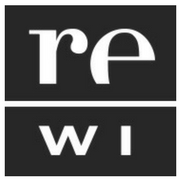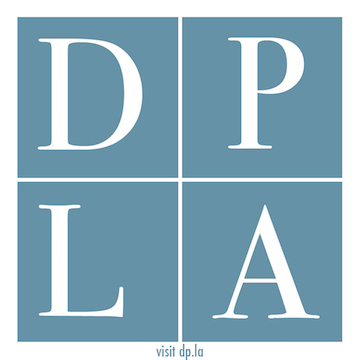
The Toolkit brings together resources for creating, managing, and sharing digital collections to address common concerns we often hear, like this one:
Help! I inherited my organization’s digitization project and I don’t know where to start!
Some of us have the luxury of building a digitization project or program from scratch. Others, though, take on digital programs or projects that were developed and initiated by long-gone staff, sometimes years or even decades prior to our own participation, and with scant meaningful documentation to help decipher the project work. Fear not! You are not alone and we’re here to help.
Questions
Start by pondering a few key questions and invite other key partners to join you including organization staff, volunteers, and/or leadership.
- What is the project history? When did the project begin? By whom? Why? In short, what’s the lowdown on this work?
- What are the project goals and outcomes?
- To what degree is the project meeting these goals and outcomes? Are they still relevant?
- Does the project (still) serve your organization? Think about how the project relates to your mission statement, collection development policy or other organizational policies or goals.
- Is this project a priority for you, your organization and/or your community?
- Are there compelling reasons to continue the work or is it time to push the proverbial pause button and reassess?
- Do you or your staff understand the project work well enough to supervise other staff or volunteers continuing to work on the project? If not, how will you help folks “get up to speed?”
- What best practices or workflows are in place to guide the work? If they exist, are these up-to-date or do they require revisiting?
- What successes, challenges and/or lessons learned have staff or volunteers encountered while engaged in this project work? Ask them to share their experiences.
- Are there costs associated with the project work? How is the project funded? Is there a defined project budget?
- Is there a deadline or timeline for continuing or completing the project, or is this ongoing work?
Tools
Once you have worked through some of these key questions, you should have a better handle on the project history, basic work and goals. As part of our NHPRC-funded project, Building a Digital Readiness Community of Practice, we developed two key tools and several practitioner case studies to guide digital project work at any stage while following some basic best practices and professional standards. These should help you get started!
Digital Readiness Levels is a road map to help local history practitioners plan and sustainably grow a digitization project or program. We designed this to be a quick, easy-to-use matrix for visualizing where you (or your project/organization) currently exist along the proverbial “digital work spectrum” and what steps you might take to grow in seven key functional areas including project planning, copyright and permissions, digitization, describing, sharing and storing content, and evaluation. Each functional area includes useful “Check as you go” questions to further guide work. The Digital Readiness Levels can also be used to prioritize continuing education and staff training activities related to various components of digital work. Give it a try and let us know what you think!
Digital Readiness Glossary includes many commonly used archives, digital collections, and organizational terms and acronyms to help you demystify some of the language associated with digital projects work. The Glossary is also available as a downloadable PDF. Got a suggestion for a term or acronym to include? Shoot us an email.
Case Studies provide experiences and advice from Wisconsin local history practitioners engaged in digital projects work. Each month, we talk to folks from libraries, archives, museums or other organizations about key components of their digitization projects – their successes, challenges and how they resolved them, lessons learned along the way, useful resources and more. Their advice to others embarking on digitization projects is invaluable.
Advice
Finally, a few additional words of wisdom from those who have been in your shoes:
Gather your documentation. Look for a mission statement, collection development policy, a grant proposal, a digital preservation policy, a project plan or budget, training manuals, emails or other communications related to the digital project – any documentation that might shed light on the work.
Talk to folks! Connect with current and former staff and volunteers. Find out as much information as possible about the project – its origins and history, successes, challenges, cost, staffing, expertise required to continue the work, and more. Document these conversations.
Don’t delete anything (yet). Be careful not to delete images, data, or documentation that might be needed as part of the project or to inform your decision-making process. Organize and save project-related materials on an external hard drive until you know what it is, why it exists, how it might be useful in helping you continue the work.
Start small. Break down a digital project into manageable pieces. For example, if your project includes scanning historic photos and sharing them online, parse out the work into 1) photo selection 2) photo scanning, 3) photo description (metadata), 4) online access, and 5) digital collection management and preservation. Map your manageable pieces to and review the Digital Readiness Levels to discern your current and desired level for that specific work. Pick one area and follow the path outlined in the Levels. Wash, rinse, and repeat.
Build and rely on your community of practice. Reach out to colleagues and other local history practitioners engaged in digital projects. Ask questions and participate in discussions and events related to digital project work.
- We invite you to join our Digital Readiness Community of Practice by signing up for our listserv (Wisconsin Digital Stewardship). Listserv members receive updates about tools, resources, events, organizations, and funding opportunities related to digital projects work.
Pro tip: “Help! I inherited my organization’s digitization project, and I don’t know where to start!” is an EXCELLENT question to pose to this group. - Got a question? Get help from a Recollection Wisconsin consultant. These experts can answer your questions, help you develop a project plan or provide guidance and training on digitization projects. Consulting can take place over email, by phone or on site.
- Wisconsin Historical Society Local History Outreach Program provides ongoing and excellent support and services for local history and cultural groups in Wisconsin.
- Come to the fair! We encourage you to attend a Digital Readiness Fair in summer 2021. Visit the Digital Fairs website for details and registration information.
Resources that can help
- Building a Digital Readiness Community of Practice: Our yearlong effort to bring together practitioners focused on digital project. Learn more about our ongoing work to create and share resources to support this community.
- Recollection Wisconsin Digital Projects Toolkit: Introduces the basic elements of digitization projects including practical tools, guidelines and examples as well as resources for more in-depth learning.
- Sustainable Heritage Network (SHN): Digital Stewardship Curriculum. Training materials, short video tutorials, templates, tools, checklists. Lots of good stuff here.
Want more practical advice about creating and caring for digital collections? Read more from The Toolkit!



You must be logged in to post a comment.